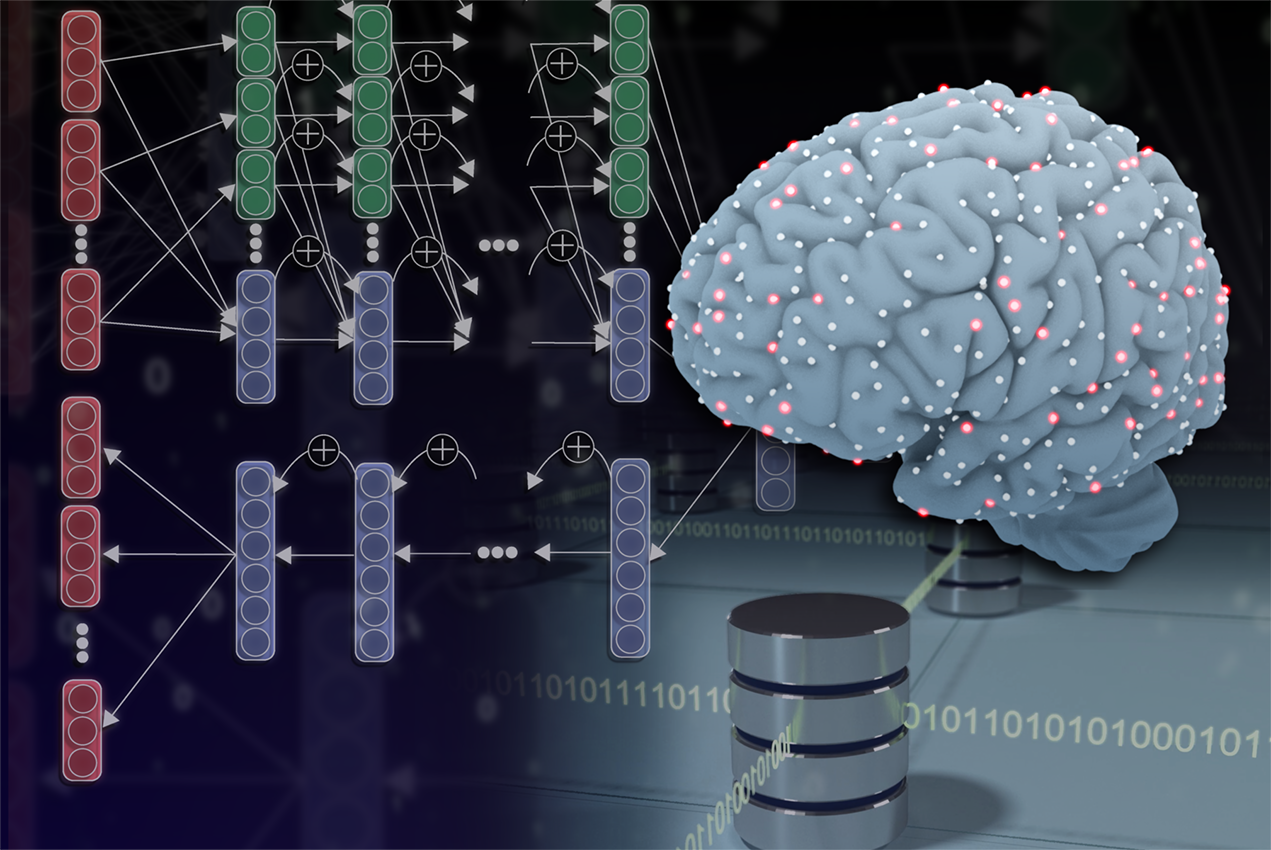A massive problem like Alzheimer’s disease (AD) — which affects nearly 50 million people worldwide — requires bold solutions. New funding expected to total $17.8 million, awarded to the Keck School of Medicine of USC’s Mark and Mary Stevens Neuroimaging and Informatics Institute (INI) and its collaborators, is one key piece of that puzzle.
The five-year National Institutes of Health (NIH)-funded effort, “Ultrascale Machine Learning to Empower Discovery in Alzheimer’s Disease Biobanks,” known as AI4AD, will develop state-of-the-art artificial intelligence (AI) methods and apply them to giant databases of genetic, imaging and cognitive data collected from AD patients. Forty co-investigators at 11 research centers will team up to leverage AI and machine learning to bolster precision diagnostics, prognosis and the development of new treatments for AD.
“Our team of experts in computer science, genetics, neuroscience and imaging sciences will create algorithms that analyze data at a previously impossible scale,” said Paul Thompson, PhD, associate director of the INI and project leader for the new grant. “Collectively, this will enable the discovery of new features in the genome that influence the biological processes involved in Alzheimer’s disease.”
Predicting a diagnosis
The project’s first objective is to identify genetic and biological markers that predict an AD diagnosis — and to distinguish between several subtypes of the disease. To accomplish this, the research team will apply sophisticated AI and machine learning methods to a variety of data types, including tens of thousands of brain images and whole genome sequences. The investigators then will relate these findings to the clinical progression of AD, including in patients who have not yet developed dementia symptoms. The researchers will train AI methods on large databases of brain scans to identify patterns that can help detect the disease as it emerges in individual patients.
“As we get older, each of us has a unique mix of brain changes that occur for decades before we develop any signs of Alzheimer’s disease — changes in our blood vessels, the buildup of abnormal protein deposits and brain cell loss,” said Thompson, who also directs INI’s Imaging Genetics Center. “Our new AI methods will help us determine what changes are happening in each patient, as well as drivers of these processes in their DNA, that we can target with new drugs.”
The team is even creating a dedicated “Drug Repurposing Core” to identify ways to repurpose existing drugs to target newly identified segments of the genome, molecules or neurobiological processes involved in the disease.
“We predict that combining AI with whole genome data and advanced brain scans will outperform methods used today to predict Alzheimer’s disease progression,” Thompson said.
Advancing AI
The AI4AD effort is part of the “Cognitive Systems Analysis of Alzheimer’s Disease Genetic and Phenotypic Data” and “Harmonization of Alzheimer’s Disease and Related Dementias (AD/ADRD) Genetic, Epidemiologic, and Clinical Data to Enhance Therapeutic Target Discovery” initiatives from the NIH’s National Institute on Aging. These initiatives aim to create and develop advanced AI methods and apply them to extensive and harmonized rich genomic, imaging and cognitive data. Collectively, the goals of AI4AD leverage the promise of machine learning to contribute to precision diagnostics, prognostication, and targeted and novel treatments.
Thompson and his USC team will collaborate with four co-principal investigators at the University of Pennsylvania, the University of Pittsburgh and the Indiana University School of Medicine.
The researchers will also host regular training events at major AD neuroimaging and genetics conferences to help disseminate newly developed AI tools to investigators across the field.
Research reported in this publication will be supported by the National Institute on Aging of the National Institutes of Health under Award Number U01AG068057. Also involved in the project are INI faculty members Neda Jahanshad and Lauren Salminen, as well as consortium manager Sophia Thomopoulos.
— Zara Greenbaum


